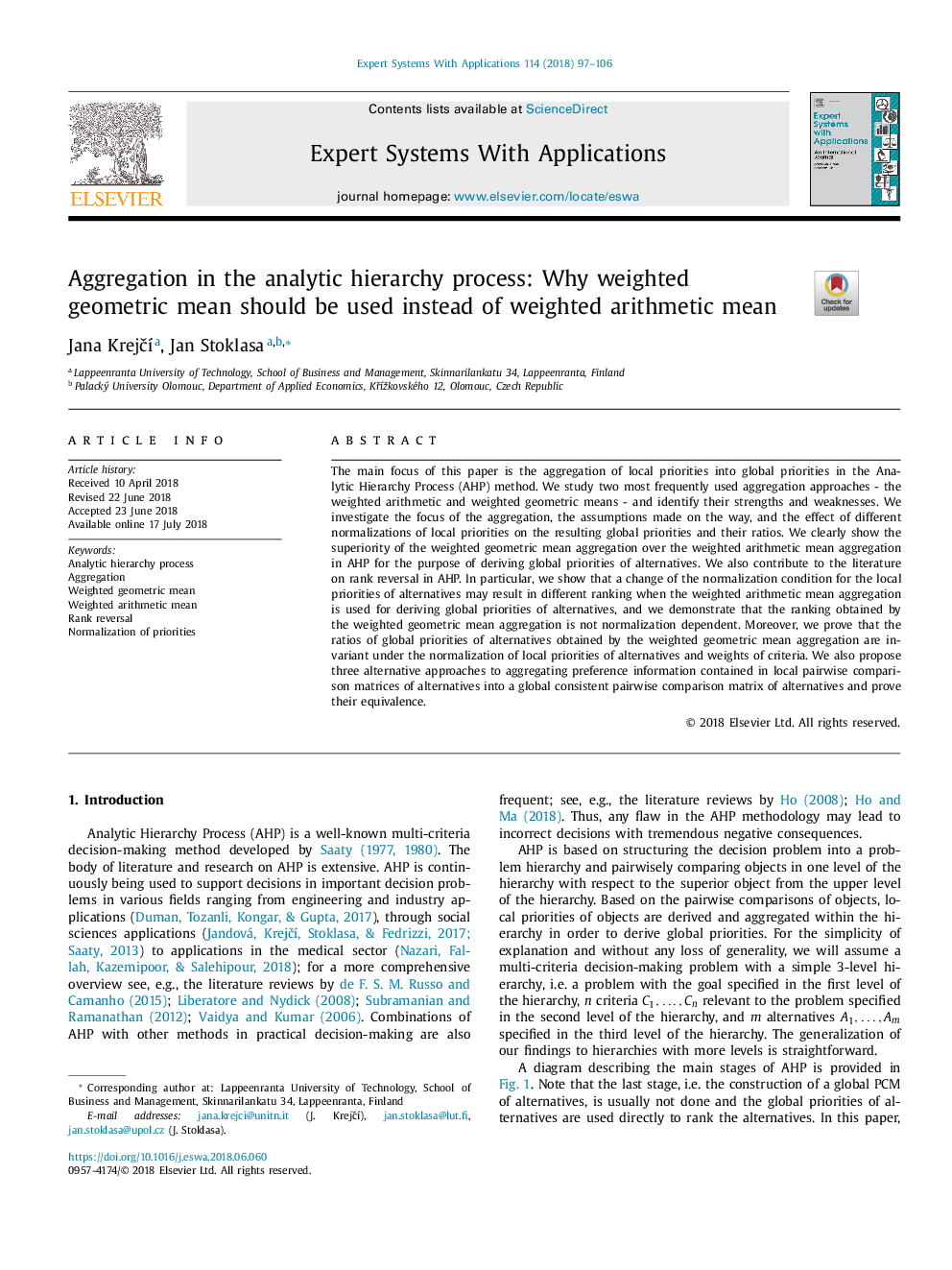| Article ID | Journal | Published Year | Pages | File Type |
|---|---|---|---|---|
| 6854664 | Expert Systems with Applications | 2018 | 10 Pages |
Abstract
The main focus of this paper is the aggregation of local priorities into global priorities in the Analytic Hierarchy Process (AHP) method. We study two most frequently used aggregation approaches - the weighted arithmetic and weighted geometric means - and identify their strengths and weaknesses. We investigate the focus of the aggregation, the assumptions made on the way, and the effect of different normalizations of local priorities on the resulting global priorities and their ratios. We clearly show the superiority of the weighted geometric mean aggregation over the weighted arithmetic mean aggregation in AHP for the purpose of deriving global priorities of alternatives. We also contribute to the literature on rank reversal in AHP. In particular, we show that a change of the normalization condition for the local priorities of alternatives may result in different ranking when the weighted arithmetic mean aggregation is used for deriving global priorities of alternatives, and we demonstrate that the ranking obtained by the weighted geometric mean aggregation is not normalization dependent. Moreover, we prove that the ratios of global priorities of alternatives obtained by the weighted geometric mean aggregation are invariant under the normalization of local priorities of alternatives and weights of criteria. We also propose three alternative approaches to aggregating preference information contained in local pairwise comparison matrices of alternatives into a global consistent pairwise comparison matrix of alternatives and prove their equivalence.
Related Topics
Physical Sciences and Engineering
Computer Science
Artificial Intelligence
Authors
Jana KrejÄÃ, Jan Stoklasa,
